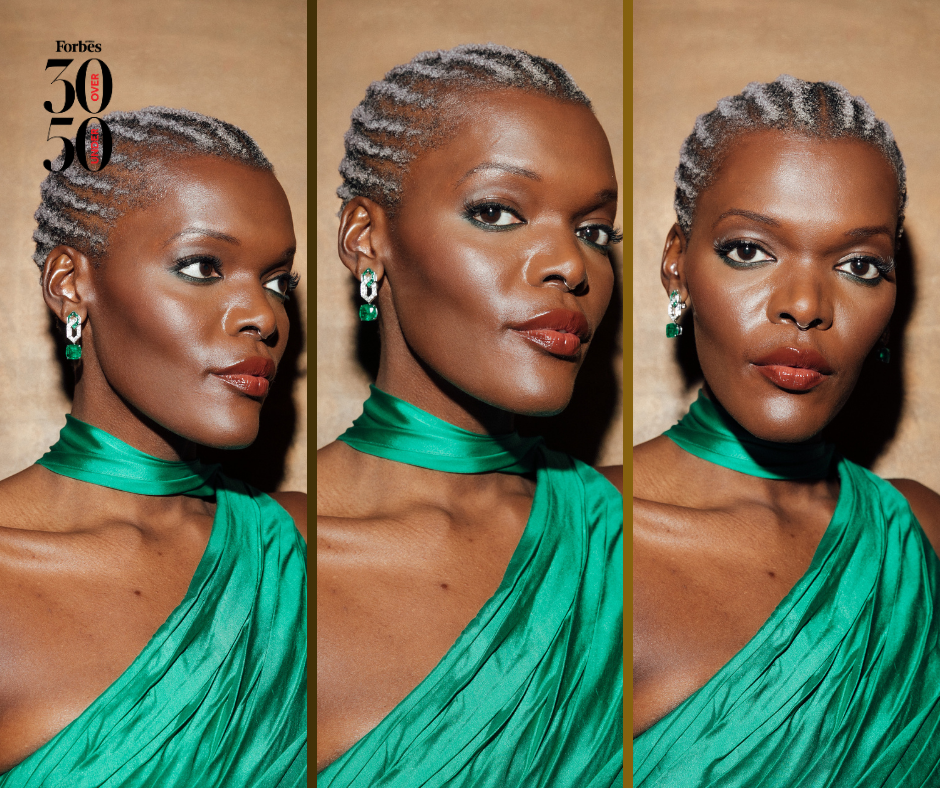In 2022, Sheila Atim made her way to South Africa to film a movie that, to this day, has had a profound impact on her.
It would explore themes like racism, gender-based violence, and female oppression, to name a few, and most of which still plague Africa today. It’s a story that Atim believes stands the test of time.
Alongside award-winning actors, Viola Davis and Thuso Mbedu, the film is about a fierce, all-female warrior regiment that protects the African Kingdom of Dahomey in the 1800s.
“There are many other [defining] moments in my career. I don’t just only value the things that get lots of public traction. Things that feel like they’ve genuinely touched people mean a lot [to me]. I know it sounds like a sort of obvious thing to say, but it is the truth.”
Atim was born in Uganda and moved to the United Kingdom with her mother when she was five months old. Growing up in Essex, she was always a creative child, and her mother embraced that about her. “I give a lot of credit to my mum because she was progressive in her thinking at that moment [when I decided I wanted to be in the entertainment industry]. A big part of it [was] about allowing her to understand and experience what I was doing, for herself,” Atim says after recalling the time her mother watched her star in Jesus Christ Superstar at school.
Loading...
This was after her mother had told her that, as a final-year student, if she was planning on doing her A-levels in drama, she could not do the show.
“I lied, and auditioned for the school show anyway, and I didn’t tell her that that’s what I’ve been doing after school. They were selling tickets to the parents, and I just gave her a letter… I was playing Mary Magdalene so I was very visible,” she recalls with a laugh.
“I remember in the car afterwards, my mom was really proud and really happy. She has always been very supportive of my artistic side.”
Soon after, Atim thought she would be going to medical school to become a doctor. But following a rejection and the subsequent disappointment, she went on to study biomedical science, earning her degree at King’s College London. She continued to pursue music during the time.
“At first I thought I was just going to be a singer and songwriter, and then that ended up expanding into so much more because of the different artistic avenues I was going down while I was studying in London.”
Atim looks back at these moments, excited to be at the forefront of storytelling, especially as an African actor. She also continues to intentionally choose projects that consist of upliftment, growth and truth. Atim sees it as her duty to play a wide array of roles, but to also bring a level of authenticity to every one of those characters.
“Storytelling, whether it’s through song, dance, literal storytelling or the written word, is such a huge and intrinsic part of most African cultures, if not all. And for us to be able to transmute that now into broader avenues of expression, and avenues of expression that have a place on the global stage, is really important. And I feel like it’s something we’re owed.
“Africans, African culture, and the diaspora have been contributing to mainstream culture forever – that’s not a new thing. But to be able to lead the charge on our work and be credited for it directly and reap direct benefits from it as well is a wonderful development.” And on the multifarious opportunities there are, she says: “I think greeting each with curiosity and the attitude that there’s always something new to learn, and what a wonderful thing to be able to apply to your craft in multiple different ways. I think that’s really exciting.”
Loading...
